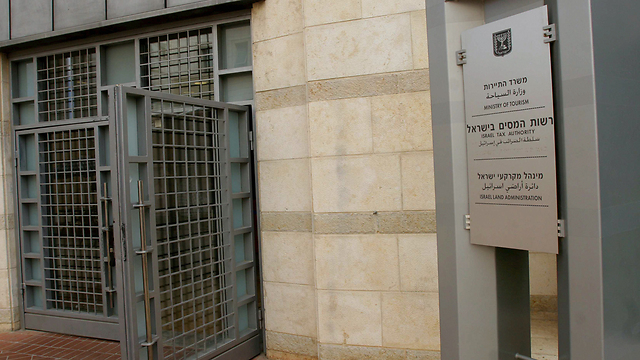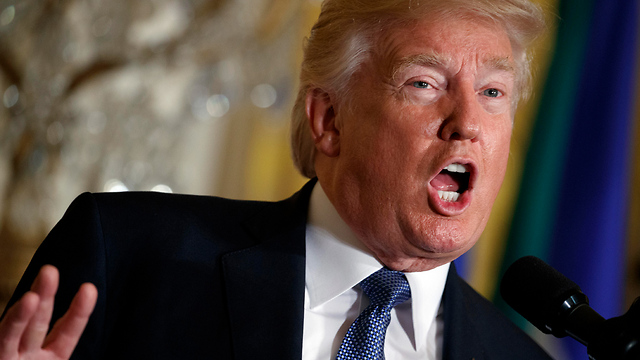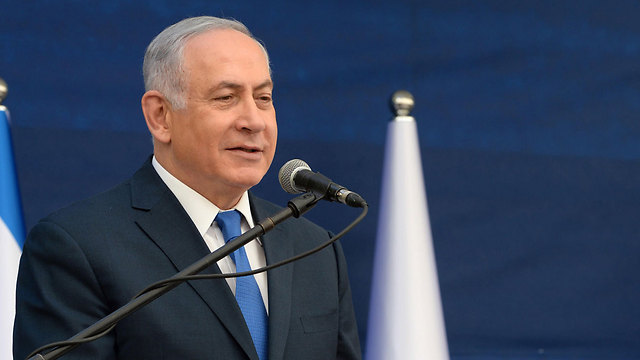
Israel may emulate projected US corporate tax slash
As White House gears for corporate tax slash, Israel considers following suit to remain competitive in attracting global investment; cuts to be financed using overcharges from Mobileye sale, other sources; income tax cuts for higher earners also mulled.
In addition, lowering income tax rates are also set to be reviewed, a move supported by the Prime Minister's Office.
This purported reduction will be financed by the country's significant tax overcharge of recent years, which came to NIS 12-15 billion more than anticipated in the beginning of the year.
Finance Minister Moshe Kahlon (Kulanu) announced Monday he would move to further reduce taxes soon following the unexpected immense revenue generated.
Israel Tax Authority data show September was a record-breaking month for tax collection, with the state accruing more than NIS 30 billion in that month alone.
The large increase in tax revenue partially stemmed from collecting NIS 4.2 billion in a special operation taxing so-called "wallet companies", which usually only employ one person: the company's owner.
Surplus was further increased by taxing capital gains of Mobileye stock holders following the company's sale to Intel. The Tax Authority will collect NIS 4 billion thanks to the deal, a bounty not anticipated in the beginning of the current tax year
In light of this fact, Israel's cumulative budget deficit dropped to a mere 1.9% of the GDP, the lowest it has been in recent memory.
Back to the matter of corporate tax, the projected Trump slash will likely bring cuts to the same tax in many other countries that will do so to avoid losing companies operating within their borders to the more attractive American market.
According to the American plan, the US's income tax brackets will be reduced from seven to merely three, while those of affluence will pay a 35% tax instead of the 40% paid today.
In Israel, the maximum amount of income tax paid is 50%, with the addition of surtax.
Israel's current corporate tax rate, meanwhile, is 24%, after it was already reduced by one percent earlier this year.
On January 1, the tax will be cut again to 23% in accordance with a plan already approved by both the government and the Knesset, but the rate is still considered relatively high compared to other countries.
One of the chief supporters of lowering corporate tax is none other than Prime Minister Benjamin Netanyahu, who was the prime force behind the 2015 lowering of the corporate levy by two percent, simultaneous to lowering VAT from 18% to 17%.
"Without a doubt, Israel's taxes should be further lowered. We must review lowering income tax rates, which are exceedingly high—especially for those making higher wages—and we should definitely consider lowering corporate tax again. The impact of the American slash on that tax should be examined, especially as it may bring about the same move in other countries," said Chairman of the National Economic Council Prof. Avi Simhon, who's the economics authority closest to Netanyahu.
Alleviating exporters' tax burden
"We have different corporate tax fields. We lowered tax on large tech firms to only 6% because we want them to keep their know-how inside Israel and employ more people," Simhon said.
"Taxes levied on exporters have already been lowered, and exporting companies should receive more assistance. A chain reaction to lowering American corporate tax is entirely within reason, and we have to discuss that, as well as tax rates in other countries," he added.
Simhon then went on to speak about income tax rates. "Tax rate reductions are definitely worthy of consideration now, and not necessarily for the lower echelons of society that barely pay any tax anyway," the National Economic Council chief said.
"Just as an example, Israeli engineers employed in the US pay roughly two thirds of the taxes they would have paid if they worked in Israel, and we want those engineers to work here, not there," he explained.
Perhaps somewhat surprisingly, former Finance Minister Yair Lapid said he supported current minister Kahlon in further reducing taxes.
"Unlike current Governor of the Bank of Israel Karnit Flug I am definitely in favor of lowering taxes, but before the Finance Ministry does that it should wait and see exactly which parts of President Trump's tax plan he can actually get through Congress. If America lowers corporate tax to 20%, Israel would have to follow suit quickly," the former minister said.
After the High Holy Days, the Prime Minister and Finance Ministries are expected to discuss lowering taxes before January 1, 2018, the start of the new budgetary and tax year.















